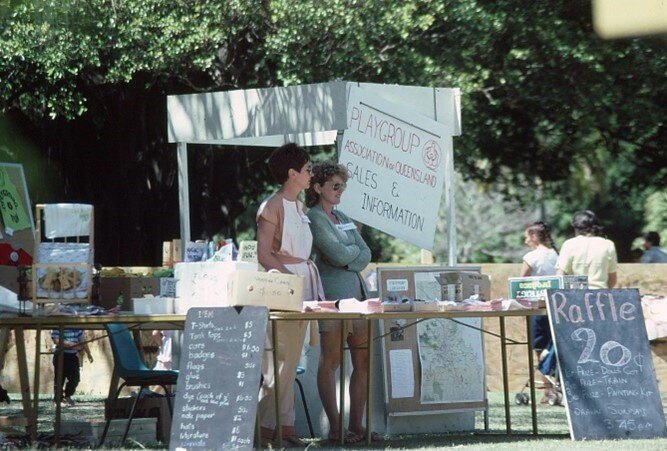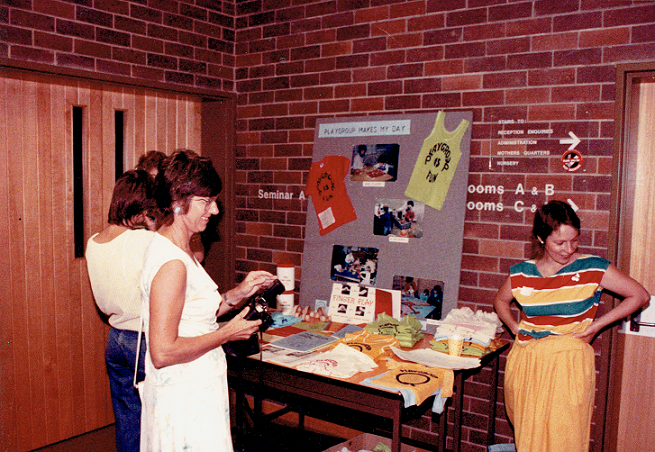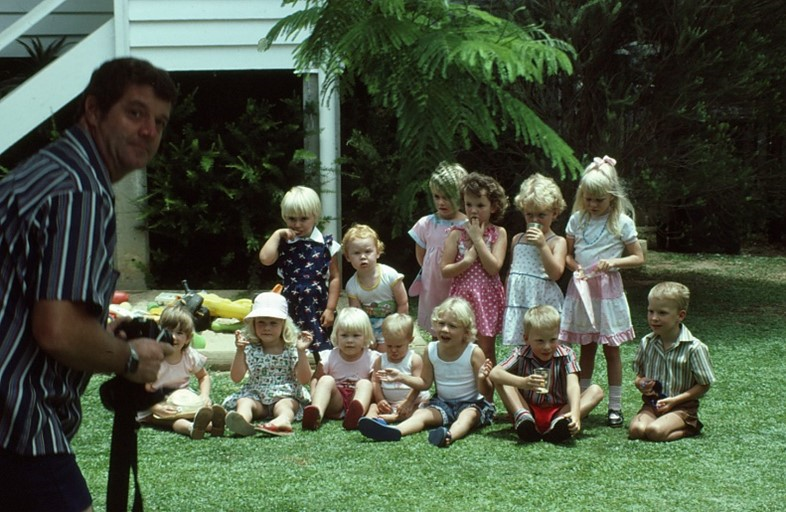
20 Years of Play Matters
Play Matters > About > Our History > Celebrating 50 Years > The First 20 Years
Learn more about the decade that brought growth and development to Play Matters Australia.
Read the Complete History Book Here

Growth and Development
The ten-year period of 1983-1993 was one of collaboration, consolidation and continued growth. Largely powered by volunteerism and belief, the aim of the Association to reach as many Queensland preschoolers and their families was always in sight. By December 1984, it was reported that the PAQ had undergone dramatic growth, sitting at 814 affiliated groups and reaching 12,347 families.

Embracing Change
Embracing change was a key element in PAQ’s continued development, and in 1987, President Alison Huth purchased the Association’s first computer. The computer proved to be a valued asset for the production of resources and administrative systems and in 1991, PAQ undertook the computerisation of a master list of equipment held in the then - 30 toy libraries run by volunteers throughout Queensland.
-1.png?width=864&height=864&name=Untitled%20design%20(31)-1.png)
I Simply Loved Playgroup —
Interview with Alison Huth
In the last year of Alison’s Presidency, with no children then attending playgroup, Alison confesses to borrowing her goddaughter as her playgroup child to ensure she could continue in her role. Her dedication extended beyond that year; as well as returning for national meetings after leaving PAQ, Alison also returned for Annual General Meetings to help enthuse others to join the committee. Making it fun was certainly on Alison’s agenda throughout her time with playgroup, and as she reflects on those years, her enthusiasm is still palpable today.
"I’ve always had a sneaking suspicion that playgroups are more for the mums than they are for the children ... I simply loved playgroup for what it did for me, what it did for my kids and for what it could do for everyone who was part of it. Trying to share the benefit of playgroup far and wide was why I was so happy to be involved."
“Play is the foundation of learning, creativity, self-expression, and constructive problem-solving. It’s how children wrestle with life to make it meaningful.”
Susan Linn - Contemporary American psychiatrist



